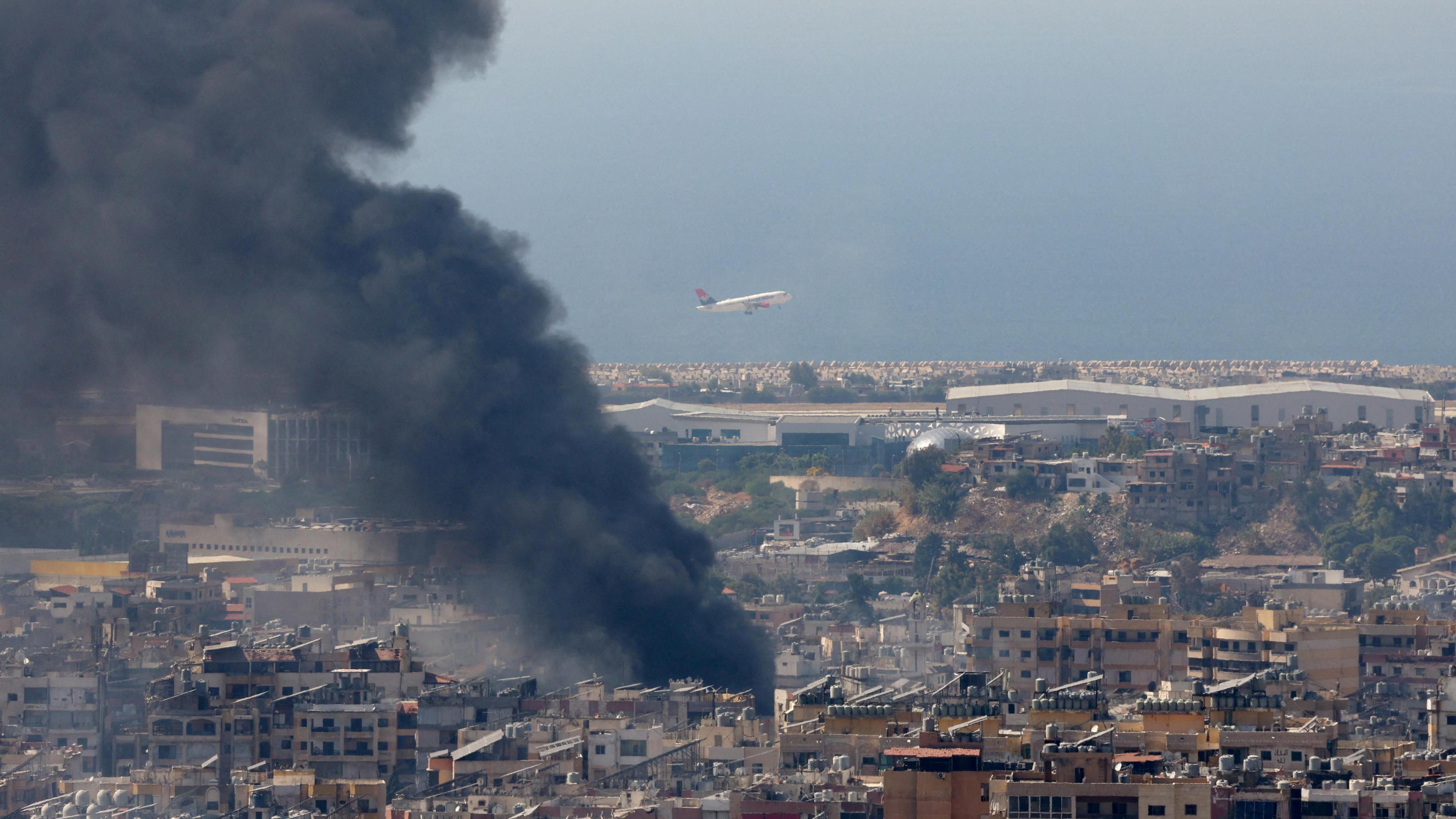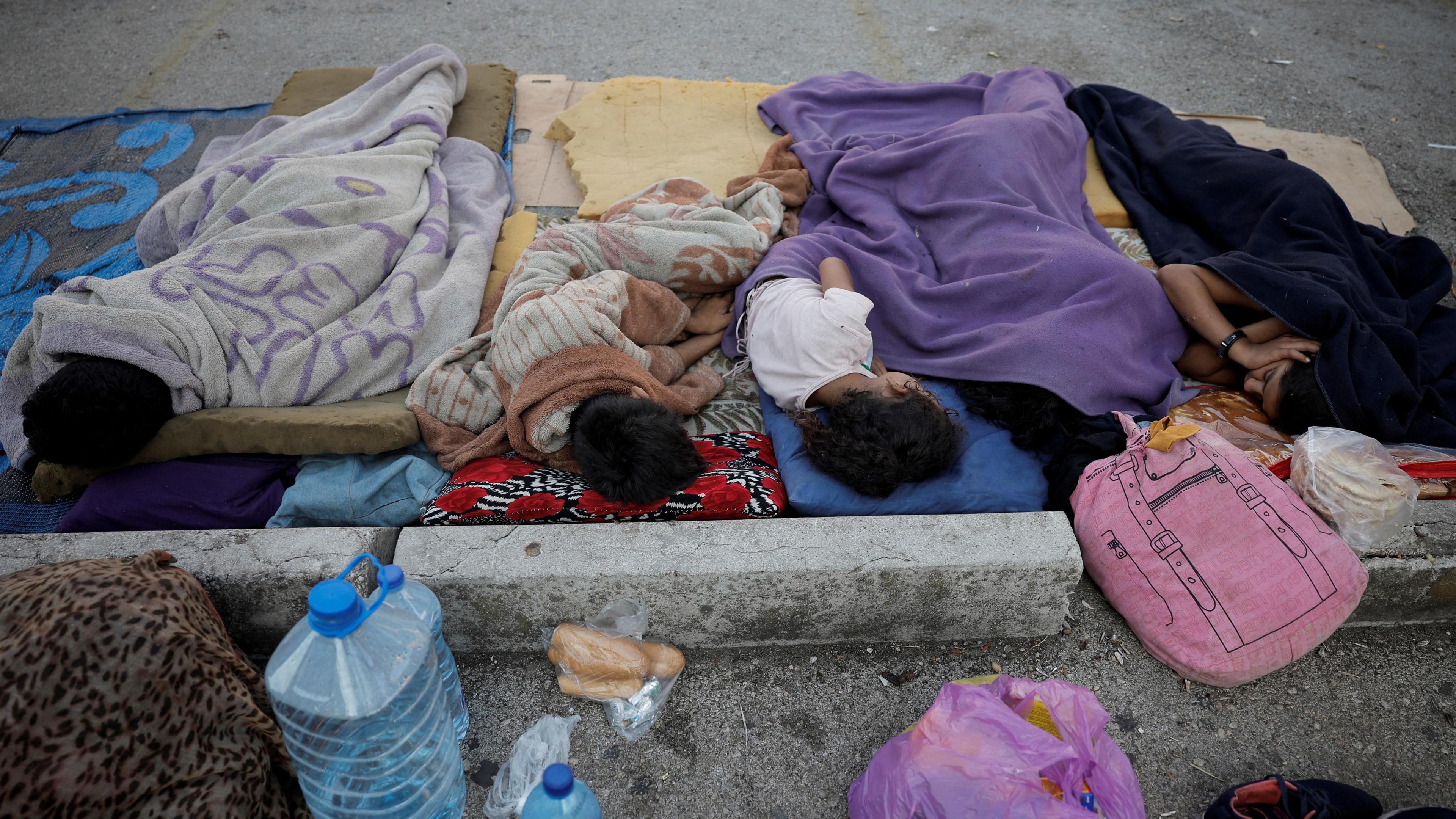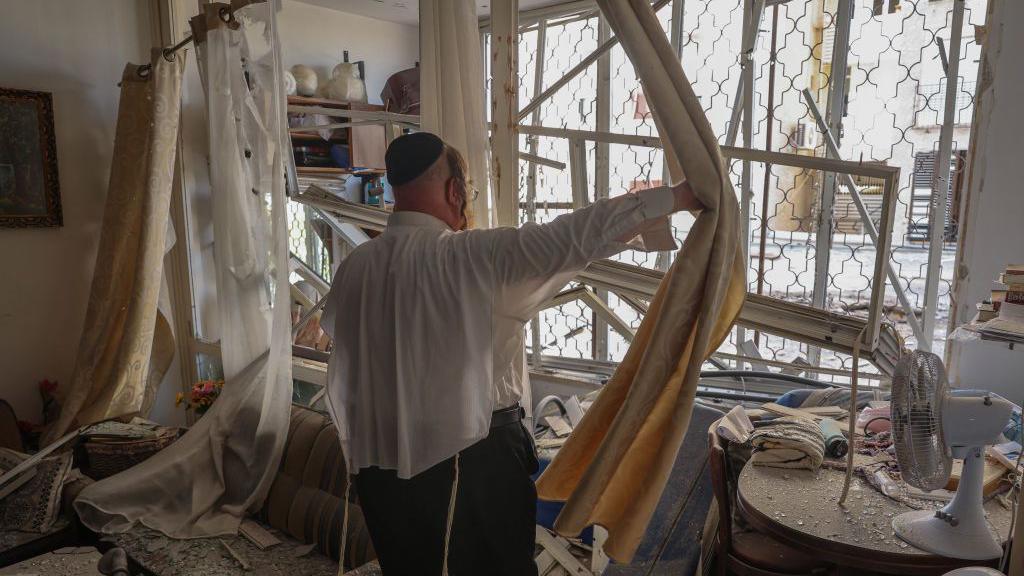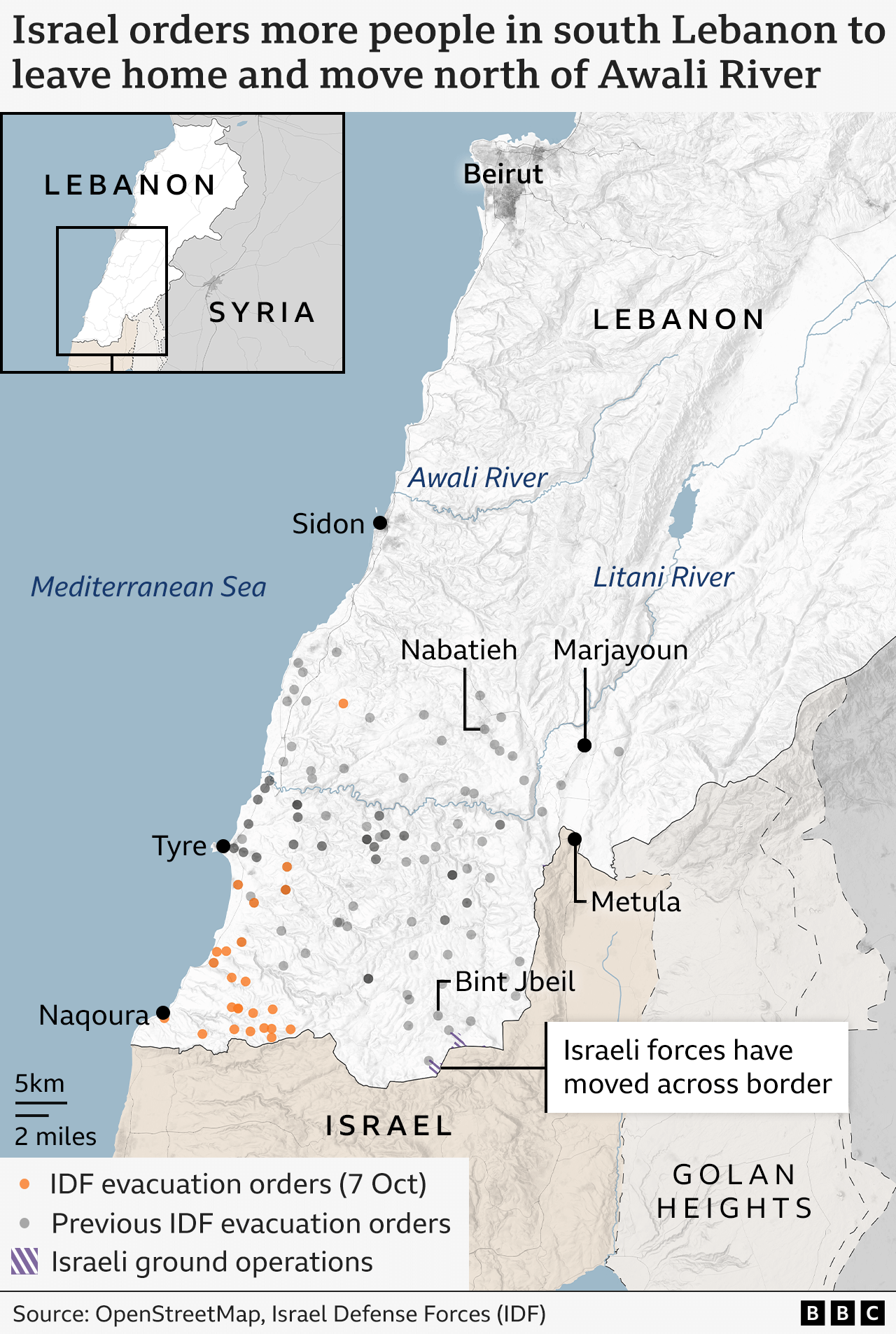Netanyahu warns Lebanon of 'destruction like Gaza'

Smoke rose over Beirut's southern suburbs after they were targeted by new Israeli air strikes on Tuesday
- Published
Israel's prime minister has urged the Lebanese people to throw out Hezbollah and avoid "destruction and suffering like we see in Gaza".
Benjamin Netanyahu's appeal on Tuesday came as Israel expanded its invasion against Hezbollah by sending thousands more troops into a new zone in south-west Lebanon. Its military said 50 Hezbollah members were killed in air strikes on Monday.
The Lebanese health ministry said 36 people were killed and 150 injured in Israeli attacks over the past 24 hours.
Meanwhile, Hezbollah launched barrages of rockets towards the Israeli port of Haifa for the third consecutive day, injuring 12 people.
During a video address directed at the people of Lebanon, Netanyahu said: "You have an opportunity to save Lebanon before it falls into the abyss of a long war that will lead to destruction and suffering like we see in Gaza.
"I say to you, the people of Lebanon: Free your country from Hezbollah so that this war can end."
Netanyahu also claimed the Israel Defense Forces (IDF) had killed the successor to Hezbollah's late leader, Hassan Nasrallah.
"We have degraded Hezbollah’s capabilities; we took out thousands of terrorists, including Nasrallah himself, and Nasrallah’s replacement, and the replacement of his replacement," he said.
Hashem Safieddine, a top Hezbollah official widely expected to succeed his cousin Nasrallah as leader, has not been heard from publicly since an Israeli air strike reportedly targeted him in Beirut last Thursday.
IDF spokesperson Daniel Hagari said on Tuesday evening it could not confirm that Safieddine was killed in the attack, adding that it was examining the results of the operation.
Hezbollah has remained defiant despite three weeks of intense Israeli strikes and other attacks that Lebanese officials say have killed more than 1,400 people and displaced another 1.2 million.
Earlier on Tuesday, Nasrallah's former deputy, Naim Qassem, insisted Hezbollah had overcome the recent “painful blows” from Israel and that its capabilities were “fine”.
Israel has gone on the offensive after almost a year of cross-border fighting sparked by the war in Gaza, saying it wants to ensure the safe return of tens of thousands of residents of Israeli border areas displaced by Hezbollah rocket, missile and drone attacks.
The hostilities have escalated steadily since Hezbollah began firing rockets into northern Israel in support of Palestinians on 8 October 2023, the day after its ally Hamas’s deadly attack on southern Israel.

Many displaced Lebanese are living in open areas in Beirut, including car parks
On Tuesday morning, the IDF announced that reservists from its 146th Division had begun “limited, localized, targeted operational activities” in south-western Lebanon.
It joined three standing army divisions which have been operating in central and eastern areas of southern Lebanon since the invasion began on 30 September - reportedly bringing the total number of soldiers deployed to over 15,000.
The IDF said troops had taken control of what it called a Hezbollah “combat compound” in the border village of Maroun al-Ras and published photos showing what it said was a loaded rocket launcher in an olive grove, as well as weapons and equipment inside a residential building.
Drone footage meanwhile showed widespread destruction in the nearby village of Yaroun, external, which was an initial target of the invasion.
Meanwhile, the UN special co-ordinator for Lebanon and the head of the UN peacekeeping force warned in a joint statement that the humanitarian impact of the conflict was “nothing short of catastrophic”.
Lebanon’s government says as many as 1.2 million people have fled their homes over the past year. Almost 180,000 people are in approved centres for the displaced.
In addition, more than 400,000 people have fled into war-torn Syria, including more than 200,000 Syrian refugees - a situation that the head of the UN’s refugee agency described as one of “tragic absurdity”.
The World Food Programme said there was “extraordinary concern for Lebanon's ability to continue to feed itself” because thousands of hectares of farmland had been burned or abandoned.

An apartment in Kiryat Yam, a suburb of Haifa, was damaged by a Hezbollah rocket on Tuesday
The IDF also said its aircraft had carried out a new round of strikes on Hezbollah targets in Beirut’s southern suburbs, where the group has a strong presence, and other areas of Lebanon on Tuesday.
Earlier, it announced that a strike in the capital on Monday had killed the commander of Hezbollah’s headquarters, Suhail Husseini.
Hezbollah did not comment on the claim. But if confirmed, it would be the latest in a series of severe blows Israel has dealt to the group, with Hassan Nasrallah and most of its military commanders having been killed in similar recent strikes.
Hezbollah's deputy leader said in a defiant televised address from an undisclosed location on Tuesday that its command and control was “solid” and had “no vacant positions”, citing its attacks on Israel in recent days.
"We are hurting them and we will prolong the time. Dozens of cities are within range of the resistance's missiles. We assure you that our capabilities are fine," Naim Qassem said.
But, for the first time, he made no mention of ending the war in Gaza as a pre-condition where previously Hezbollah has said it would not stop attacking Israel until the Gaza conflict is over.
"We support the political efforts that (Lebanese Parliament Speaker) Nabih Berri is undertaking towards a ceasefire," Qassem said in a televised speech.
"Once a ceasefire is achieved, diplomacy can look into all the other details."
It was not clear if this meant a change in Hezbollah’s position.
The speech coincided with the launch of more than 100 rockets towards Haifa Bay, as well as the Lower, Central and Upper Galilee regions.
The IDF said most of the rockets were intercepted. There were no serious casualties.
On Sunday night, there was a direct hit on Haifa - something which had not happened since Israel and Hezbollah last fought a war in 2006.
